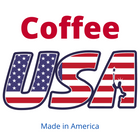Decaffeination
All coffee naturally has caffeine, so the only way to get decaf is to process the beans to remove it. There are several ways this is done, all involving treating the beans with various types of chemicals to extract the caffeine.The best method is the Swiss Water process, which is the most natural and will leave you with the best tasting coffee in the end. Natural water is used, and the beans are treated several times to slowly leach out the caffeine. Without resorting to too much chemistry, that's the process in a nutshell. It takes longer than the other methods and requires more equipment so Swiss Water decaf is more expensive than the others.The most common way to decaffeinate beans is with ethyl acetate. It's a naturally occurring solvent which means some coffee companies have taken the liberty of calling their beans "naturally processed". While it may be natural, it is still harsher than the Swiss Water method, and the beans are not as well preserved.Regardless of the method, some taste will be lost. That is one of the negatives about drinking decaf when compared to regular coffee.But even after all the treatment, even decaf still has caffeine in it. Typically, decaffeinated beans have 97% of their caffeine taken out, but there will always be at least a little bit left. So when comparing caffeinated or decaffeinated, don't assume that the decaf has no caffeine at all.And if you are thinking of switching to tea, black tea does have less caffeine than coffee. Green tea has even less, but it is not caffeine-free as some people mistakenly believe.Basically, the debate between caffeinated or decaffeinated comes down to personal taste as well as some health issues when you drink large volumes of coffee. Drinking 3 or 4 cups of regular coffee each day is considered a reasonably amount, and will not cause any problems from the caffeine. If you are drinking more than that on a regular basis, you might want to consider switching at least part of our intake to decaf.
Caffeinated
Caffeinated or decaffeinated may seem like a very simple choice for coffee-drinkers, with most people preferring the naturally caffeine-laden beans. The extra energy, or at least the sensation of extra energy, is a big part of why people drink coffee in the first place.Of course, after a while you do become physically addicted to the caffeine and then you will find that you get headaches or are very irritable if you forgo your usual cup. Some studies have shown actual health benefits, but there has been nothing conclusive. Too much caffeine will give you the jitters, more headaches and can effect your blood pressure and heart rate. But as long as you keep your coffee drinking in moderation, you won't suffer any negative effects.Without a doubt, coffee with caffeine is the easiest to get especially if you shop for the more exclusive quality coffee beans from around the world. Standard "grocery store" coffee is almost always available in regular as well as decaf. One of the reasons for this is that the process to remove the caffeine can effect the final taste of your coffee, and those who enjoy more exotic varietals aren't very interested in that happening to their precious beans.







